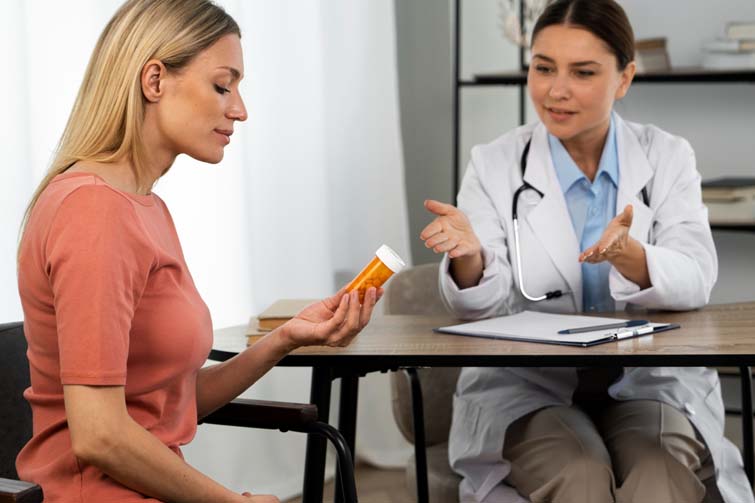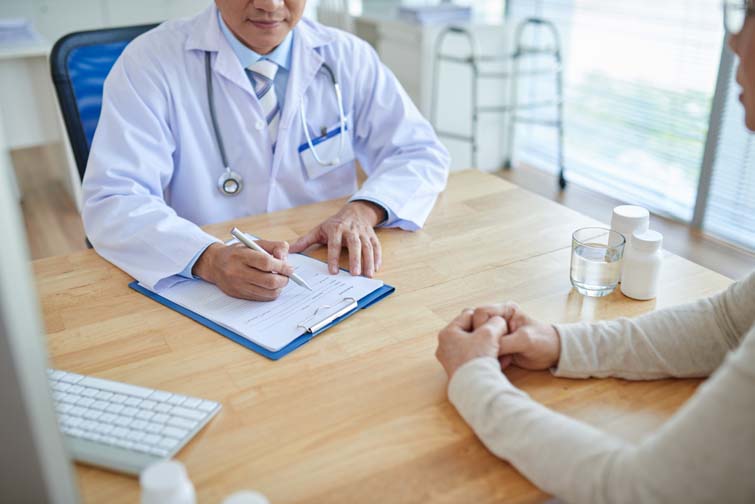
In Southington, CT, as in any other part of the world, sexually transmitted diseases (STDs) are a prevalent concern that affects individuals of all ages and backgrounds. Unfortunately, many people remain unaware of the alarming risks associated with undiagnosed STDs, which can severely affect their health, relationships, and society. This blog aims to shed light on the critical importance of STD testing in Southington, CT, and the potential risks of leaving STDs undiagnosed and untreated.
Receiving a positive STD diagnosis can be overwhelming, and seeking professional support is essential. Trained healthcare professionals in Southington, CT, can provide accurate information about the specific STD, available treatment options, and potential long-term implications. Early treatment and management are vital for maintaining health and preventing further transmission. Don’t hesitate to schedule an appointment for STD testing in Southington, CT, to take charge of your sexual health.
One of the most concerning risks of undiagnosed STDs is their role in facilitating transmission. Undiagnosed individuals may unknowingly spread infections to their partners, leading to a chain of transmission that can quickly escalate within the community. As many STDs may initially present no symptoms or mild symptoms, regular STD testing in Southington, CT, becomes crucial in identifying and breaking the transmission cycle.
Undiagnosed STDs can wreak havoc on reproductive health, impacting both men and women. Infections like chlamydia and gonorrhea, when left untreated, can cause pelvic inflammatory disease (PID) in women, leading to scarring of the reproductive organs and an increased risk of infertility. Men are also at risk, as untreated STDs can cause epididymitis, leading to potential fertility issues. For couples planning to conceive, STD testing in Southington, CT, is an essential step to safeguard their reproductive health.
Undiagnosed STDs can cause severe damage to various organs if left untreated. For instance, hepatitis C, a viral STD, can lead to chronic liver disease, cirrhosis, and liver cancer. Syphilis, another untreated STD, can progress to neurosyphilis, affecting the nervous system and causing irreversible neurological complications. Early detection through regular STD testing in Southington, CT, is vital in preventing long-term organ damage.

Certain STDs can significantly increase an individual’s susceptibility to HIV infection. STDs like herpes and syphilis create open sores or ulcers, providing an entry point for HIV. Additionally, untreated STDs can weaken the immune system, making it easier for HIV to establish an infection. By opting for regular STD testing, individuals can be aware of their STD status and take proactive measures to protect themselves against HIV.
The link between certain STDs and cancer is well-established. Human Papillomavirus (HPV), for instance, is a viral STD that can cause cervical cancer in women. Regular STD testing is essential for early detection of HPV, allowing for timely intervention through vaccination or medical treatments to prevent cancer development.
Misuse and overuse of antibiotics in treating STDs have contributed to the emergence of drug-resistant strains. When STDs are not promptly diagnosed and treated, they have more time to mutate and develop resistance to common antibiotics. Regular STD testing helps identify infections early, enabling appropriate and effective treatment, thereby reducing the risk of drug-resistant strains.
The stigma surrounding STDs can affect an individual’s mental and emotional well-being. The fear of judgment and discrimination can deter people from seeking STD testing in Southington, CT, and treatment, leading to a cycle of undiagnosed infections. The negative impact on mental health can be minimized by promoting open communication and providing a supportive environment.
The economic consequences of undiagnosed STDs are significant. The cost of treating advanced stages of STDs and related complications is considerably higher than early diagnosis and intervention. Additionally, lost productivity due to illness and missed work days can strain individuals and businesses. Regular STD testing in Southington, CT, can help prevent the financial burden of untreated STDs.
Undiagnosed STDs can also have legal and social ramifications. In many regions, individuals with STDs are legally obligated to disclose their status to sexual partners. Failure to do so may result in lawsuits and legal consequences. The social implications of living with an STD can lead to strained relationships and social isolation. By opting for STD testing in Southington, CT, individuals can protect both their health and legal standing.

Taking proactive steps to deal with the risks of undiagnosed STDs is crucial for maintaining optimal sexual health and well-being. Regular STD testing in Southington, CT, empowers individuals with knowledge about their health status, enabling early intervention and preventing severe complications.
One of the most proactive steps individuals in Southington, CT, can take to mitigate the risks of undiagnosed STDs is to prioritize regular STD testing in Southington, CT. Testing allows for early detection of infections, which is crucial in preventing transmission, organ damage, and long-term complications. For sexually active individuals, annual or more frequent STD testing is recommended, especially if they have multiple partners or engage in high-risk behaviors. By making STD testing a routine part of their healthcare, individuals can stay informed about their sexual health status and seek prompt treatment.
Knowledge is a powerful tool in preventing the spread of STDs and reducing the associated risks. Stay informed about various STDs, their symptoms, and modes of transmission. Engage in open conversations about sexual health with your partners and peers, promoting a culture of knowledge-sharing and destigmatization. In Southington, CT, community organizations, healthcare providers, and public health agencies often offer educational resources and workshops on sexual health. By becoming an advocate for sexual health education, you can empower others to make informed decisions and prioritize regular STD testing in Southington, CT.
Using barrier methods like condoms or dental dams consistently and correctly during sexual activity can significantly reduce the risk of STD transmission. Safe sex practices are essential, particularly with new or casual partners. However, it’s important to remember that not all STDs can be prevented solely through barrier methods, as some, like herpes and HPV, can spread through skin-to-skin contact. Safe sex, combined with regular STD testing in Southington, CT, provides a comprehensive approach to protecting your sexual health.
In the case of certain STDs, vaccinations are available to prevent infections altogether. For instance, the HPV vaccine can protect against several high-risk strains of the virus, reducing the risk of cervical cancer and other related complications. Hepatitis B vaccination is also recommended for individuals at risk of contracting the virus. Consult a healthcare provider in Southington, CT, to determine which vaccinations are appropriate for you based on age, sexual activity, and medical history.
If you have been diagnosed with an STD, it’s crucial to disclose your status to your sexual partners before engaging in intimate activities. Honest communication fosters trust and allows both partners to make informed decisions about their sexual health. In Southington, CT, laws may require individuals with certain STDs to disclose their status to sexual partners. Failing to do so may have legal consequences. Be responsible and caring by communicating openly with your partners and encouraging them to get tested.
If you receive a positive STD test result, you must seek prompt treatment from a qualified healthcare provider in Southington, CT. Many STDs can be effectively treated and managed with medication, especially when diagnosed early. Prompt treatment reduces the risk of complications and prevents further transmission to others. Follow your healthcare provider’s instructions diligently, and complete the prescribed treatment course to ensure a successful recovery.
Limiting the number of sexual partners can significantly reduce the risk of acquiring and spreading STDs. Engaging in monogamous relationships where both partners are committed to each other’s sexual health can provide a protective barrier against potential infections. Avoiding casual and anonymous encounters lowers the risk of contacting individuals who might be unaware of their STD status. By prioritizing stable and trusting relationships, you can create a safer environment for yourself and your partner in Southington, CT.
Ensure you access confidential and convenient STD testing in Southington, CT. Confidentiality is vital in encouraging people to seek testing without fear of judgment or disclosure. Many healthcare providers, clinics, and public health centers offer discreet and accessible testing options. Some even provide at-home testing kits that allow individuals to collect samples privately and send them to a laboratory for analysis. The easier it is to get tested, the more likely individuals will take proactive steps toward their sexual health.
Stay updated on the latest STD testing in Southington, CT, and treatment guidelines in Southington, CT. Medical recommendations and best practices may evolve, so being well-informed ensures you receive the most accurate and effective care. Regularly consult with a knowledgeable healthcare provider who can provide expert advice and address any concerns you may have regarding your sexual health.


After undergoing STD testing in Southington, CT, individuals may experience mixed emotions regardless of the test results. Whether the test comes back negative or positive, it is essential to take certain steps to move forward and prioritize one’s sexual health.
Receiving a negative STD test result is a relief, but it does not mean that one is immune to future infections. It is crucial to continue practicing safe sex and getting tested regularly, especially if one’s sexual activity involves multiple partners. Stay informed about STD prevention strategies and communicate openly with partners about sexual health.
If the test result is positive, following up with a healthcare provider in Southington, CT, is essential for appropriate treatment. Most STDs are treatable; early intervention can prevent complications and transmission to others. Additionally, inform recent sexual partners about the diagnosis so that they can also get tested and seek treatment if necessary.
Receiving a positive test result after an STD test in Southington, CT, can be emotionally challenging. It is essential to seek emotional support from friends, family, or support groups in Southington, CT. Talking about feelings and concerns with someone who understands can help cope with the situation and reduce stress.
For those with a positive STD test result, honest communication with current and future partners becomes even more crucial. It may be uncomfortable, but disclosing one’s STD status to sexual partners is necessary for their safety and informed decision-making when it comes to STD testing in Southington, CT.
For some STDs, follow-up testing is necessary to ensure that the treatment is successful and the infection has cleared. Adhering to a healthcare provider’s instructions regarding follow-up STD testing in Southington, CT, is essential for monitoring one’s sexual health.
A healthy lifestyle can boost the immune system and overall well-being, helping the body better defend against infections. Regular exercise, a balanced diet, sufficient sleep, and stress management all contribute to a stronger immune system. These practices, combined with regular STD testing in Southington, CT, create a comprehensive approach to sexual health.
Support local sexual health clinics and initiatives that provide confidential and accessible STD testing in Southington, CT. These organizations play a crucial role in promoting sexual health education and ensuring testing is readily available to everyone in the community.
Keep up-to-date with STD trends in Southington, CT, and across the country. Understanding the prevalence of certain infections can help individuals make informed decisions about their sexual health and potential risk factors before getting STD testing in Southington, CT.

To combat the alarming risks of undiagnosed STDs, it is essential to encourage regular STD testing and comprehensive sexual health education. Open communication about sexual health and destigmatization of STDs can empower individuals to take charge of their well-being. In Southington, CT, access to confidential and convenient facilities for STD testing in Southington, CT, is crucial in encouraging more people to prioritize their sexual health.
Here are some effective ways to achieve this goal:
Implement comprehensive sexual health education initiatives in schools, colleges, and community centers in Southington, CT. These programs should focus on providing accurate information about STDs, their transmission, prevention, and the importance of regular testing. Educating young adults from an early age equips them with the knowledge to make informed decisions and reduces the stigma associated with STDs.
Launch awareness campaigns that emphasize the importance of STD testing in Southington, CT. Utilize various media platforms, such as social media, billboards, and local publications, to reach a wider audience. These campaigns can aim to destigmatize STD testing by promoting it as a responsible and normal aspect of sexual health care.
Establish support groups in Southington, CT, where individuals can share their experiences and seek guidance without judgment. Support groups provide a safe space for those living with STDs and can be instrumental in breaking down the emotional barriers associated with seeking testing and treatment.
Collaborate with healthcare providers in Southington, CT, to ensure they provide non-judgmental and confidential STD testing services. Training healthcare professionals to address sexual health concerns with sensitivity and empathy fosters an environment where individuals feel comfortable discussing their concerns and seeking testing.
Organize community events focused on sexual health and STD testing in Southington, CT. These events can include free or low-cost testing services, educational workshops, and resources on sexual health. By creating a supportive and informative environment, individuals are more likely to take proactive steps toward their sexual well-being.
Encourage open and non-judgmental conversations about sexual health among friends, family, and peers in Southington, CT. Normalize discussions about STD testing, emphasizing that it is a responsible and essential part of taking care of one’s health. By removing the shame and embarrassment surrounding STDs, individuals are more likely to prioritize testing and take proactive measures.
Collaborate with local organizations, clinics, and healthcare providers in Southington, CT, to increase access to confidential STD testing services. By pooling resources and knowledge, these partnerships can enhance outreach efforts and provide testing opportunities in convenient locations.
Share stories of individuals who have gone through the process of STD testing and treatment, emphasizing the positive impact it had on their lives. Testimonials and role models help others in Southington, CT, see testing as a normal and empowering step toward maintaining good sexual health.
Taking proactive steps after STD testing in Southington, CT, is essential for safeguarding one’s sexual health and promoting a supportive community. Take charge of your sexual health today and schedule an STD test at Docs Primary Care – Southington. Our comprehensive STD testing is carried out with a caring and non-judgmental approach, ensuring individuals can prioritize their sexual health comfortably. With us, you can get your STD test results in just 20 minutes.

During this surge in COVID-19 cases, our primary focus is meeting the high demand for tests, and we are seeing higher than usual wait times. This means we are unable to answer most phone calls. Please know that our teams are working very hard during this time to care for as many patients as safely as possible. Please click the button below for answers to common questions. We appreciate your understanding.